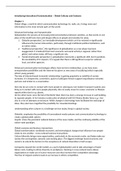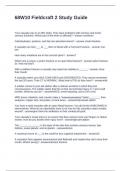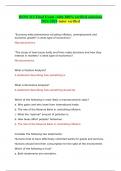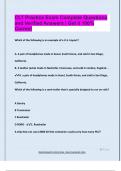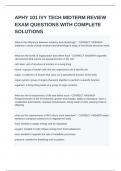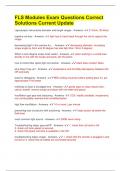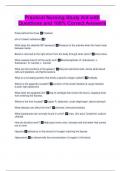1.1 The Research Enterprise......................................................................................................... 3
1.2 Conceptualizing Research ...................................................................................................... 4
1.3 The Language of Research...................................................................................................... 4
1.4 The Structure of Research ...................................................................................................... 7
1.5 The Validity of Research ......................................................................................................... 7
2 Ethics.......................................................................................................................... 9
2.1 Foundations of Ethics in Research.......................................................................................... 9
2.2 Historical Cases of Unethical Research .................................................................................. 9
2.3 Evolution of a Modern System of Research Ethics ............................................................... 10
2.4 Ethics in the Production and Publication of Scholarly Work ................................................ 11
3 Qualitive Approaches to Research ............................................................................ 13
3.1 Foundations of Qualitative Research ................................................................................... 13
3.2 The Context for Qualitative Research .................................................................................. 13
3.3 Qualitative Traditions ........................................................................................................... 13
3.4 Qualitative Methods............................................................................................................. 14
3.5 Qualitative Data ................................................................................................................... 14
3.6 Assessing Qualitative Research ............................................................................................ 15
4 Sampling .................................................................................................................. 16
4.1 Foundations of Sampling ...................................................................................................... 16
4.2 Sampling Terminology .......................................................................................................... 16
4.3 External Validity ................................................................................................................... 16
4.4 Sampling Methods ............................................................................................................... 16
4.5 Nonprobability Sampling ...................................................................................................... 17
4.6 Probability Sampling: Theory ............................................................................................... 18
4.7 Probability Sampling: Procedures ........................................................................................ 18
4.8 Threats to External Validity .................................................................................................. 19
4.9 Improving External Validity .................................................................................................. 19
5 Introduction to Measurement ................................................................................... 20
5.1 Foundations of Measurement .............................................................................................. 20
5.2 Quality of Measurement ...................................................................................................... 20
5.3 Integrating Reliability and Validity ....................................................................................... 24
6 Scales, Tests, and Indexes ......................................................................................... 25
6.1 Foundations of Scales, Tests, and Indexes ........................................................................... 25
6.2 Scales and Scaling ................................................................................................................. 25
6.3 Tests ..................................................................................................................................... 26
7 Survey Research ....................................................................................................... 28
7.1 Foundations of Survey Research .......................................................................................... 28
7.2 Types of Survey Research ..................................................................................................... 28
7.3 Selecting the Survey Method ............................................................................................... 29
7.4 Survey Design ....................................................................................................................... 30
7.5 Interviews ............................................................................................................................. 32
Moon Z. 2022 1
,8 Introduction to Design .............................................................................................. 34
8.1 Foundations of Design .......................................................................................................... 34
8.2 Research Design and Causality ............................................................................................. 34
9 Experimental Design ................................................................................................. 37
9.1 Foundations of Experimental Design ................................................................................... 37
9.2 Introduction: The Origins of Experimental Design ............................................................... 37
9.3 Classifying Experimental Designs ......................................................................................... 38
9.4 Signal Enhancing Designs: Factorial Designs ........................................................................ 38
9.5 Noise-Reducing Designs: Randomized Block Designs .......................................................... 39
9.6 Noise-Reducing Designs: Covariance Designs ...................................................................... 39
10 Quasi-Experimental Design....................................................................................... 40
10.1 Foundations of Quasi-Experimental Design ......................................................................... 40
10.2 The Nonequivalent-Groups Design .................................................................................. 40
10.3 The Regression-Discontinuity Design ................................................................................... 41
10.4 Other Quasi-Experimental Designs .................................................................................. 42
11 Introduction to Data Analysis ................................................................................... 43
11.1 Foundations of Data Analysis ............................................................................................... 43
11.2 Conclusion Validity ............................................................................................................... 43
12 Inferential Analysis ................................................................................................... 44
12.1 Foundations of Analysis for Research Design ....................................................................... 44
12.2 Inferential Statistics .............................................................................................................. 44
12.3 General Linear Model ........................................................................................................... 44
Glossary Research Methods ............................................................................................. 46
Chapter 1 .......................................................................................................................................... 46
Chapter 2 .......................................................................................................................................... 49
Chapter 3 .......................................................................................................................................... 52
Chapter 4 .......................................................................................................................................... 53
Chapter 5 .......................................................................................................................................... 55
Chapter 6 .......................................................................................................................................... 57
Chapter 7 .......................................................................................................................................... 58
Chapter 8 .......................................................................................................................................... 60
Chapter 9 .......................................................................................................................................... 62
Chapter 10 ........................................................................................................................................ 63
Chapter 11 ........................................................................................................................................ 64
Chapter 12 ........................................................................................................................................ 65
Moon Z. 2022 2
, 1 Foundations of Research Methods
1.1 The Research Enterprise
1.1a What Is Research?
Definition research: Research is a type of systematic investigation that is empirical in nature and is
designed to contribute to public knowledge. Social research is research that have to do with our
societies.
When we conduct research, we do a research project. Each research project contributes to the
broader effort worldwide, this is called the research enterprise.
1.1b Translational Research
Translational research is the movement when we put the discovery into practice and impact the
research enterprise. The process of when this is done for the research enterprise is being called a
research-practice continuum.
The steps of research, the Translational Research (in which the Research-Practice Continuum takes
place):
1. Basic research is designed to generate discoveries and to understand their mechanisms
better. If these discoveries relate to humans;
2. This is usually followed by a series of applied research projects, where the discoveries get
tested under controlled conditions;
3. Followed by a process of seeing how well it can be implemented in and disseminated to the
broader extend (implementation and dissemination research);
4. Sometimes discoveries lead to new policies, investigated by policy research.
5. The discoveries are eventually being assessed for the impacts on society (impact research).
1.1c Research Syntheses and Guidelines
Research literature has become voluminous, so the research enterprise has evolved a system for
synthesizing the large number of research studies (handy for step 3 in your translational research). A
research synthesis is a systematic study of multiple prior research projects which practitioners can
use. This consist of two major types:
• Meta-analysis; uses statistical methods to combine results (quantitative)
• Systematic review; often a group of people who focus on a specific question or issue (more
qualitative, could possibly also include a meta-analysis)
These reviews are sometimes very formal and not understandable for practitioners, here for a practice
guideline has been developed; specific set of research-based recommendations. These research
syntheses and guidelines made it possible for practitioners to deal with the research on macro level.
1.1d Evidence-Based Practice
Evidence-based practice (EBP) is a movement to make practitioners employ practices that are based
on evidence from other research in syntheses or practice guidelines. Controversy, researchers are in
doubt whether the term ‘evidence’ is being representative.
1.1e An Evolutionary Perspective on the Research Enterprise
The philosophy that holds ideas evolve through the process of natural selection. An individual
discovery or idea is like an organism in biology; it competes with other established and emerging
discoveries. It either survives or it doesn’t, and existing knowledge evolves.
Moon Z. 2022 3



